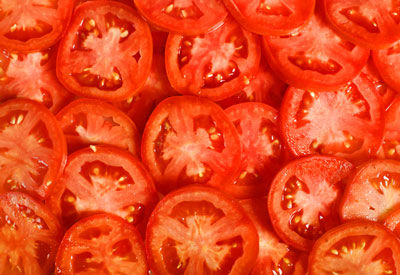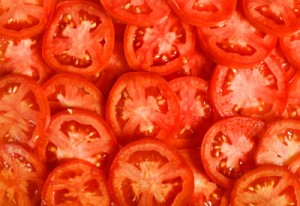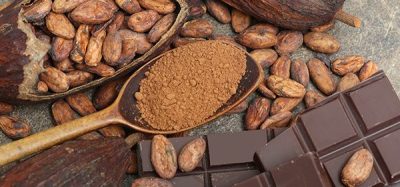Heating tomatoes before chilling preserves flavour
- Like
- Digg
- Del
- Tumblr
- VKontakte
- Buffer
- Love This
- Odnoklassniki
- Meneame
- Blogger
- Amazon
- Yahoo Mail
- Gmail
- AOL
- Newsvine
- HackerNews
- Evernote
- MySpace
- Mail.ru
- Viadeo
- Line
- Comments
- Yummly
- SMS
- Viber
- Telegram
- Subscribe
- Skype
- Facebook Messenger
- Kakao
- LiveJournal
- Yammer
- Edgar
- Fintel
- Mix
- Instapaper
- Copy Link
Posted: 19 August 2015 | Victoria White | No comments yet
Adding or rearranging a few simple steps in commercial processing could dramatically improve the flavour of tomatoes, according to researchers…


Adding or rearranging a few simple steps in commercial processing could dramatically improve the flavour of tomatoes, according to researchers.


The scientists will present new research on tomato flavour-saving methods at the 250thNational Meeting & Exposition of the American Chemical Society (ACS).
“Ideally, tomatoes should be picked ripe and then sold immediately, as they are at farm stands,” said Jinhe Bai, Ph.D. But this isn’t always possible for commercially sold tomatoes, which are often stored and then shipped over long distances.
To prevent tomatoes from becoming too ripe before they reach the store, growers pick them when they are still green. Packers then use a gas called ethylene to trigger fruit ripening, and after that the tomatoes are stored and shipped at low temperatures.
The problem is that chilling tomatoes degrades their flavour. In an effort to improve the flavour quality, Bai’s team developed a slightly different method. “To produce a better tasting tomato, we added a hot water pre-treatment step to the usual protocol that growers follow,” he explained, “We found that this pre-treatment step prevents flavour loss due to chilling.”
Describing the process in more detail, Bai explained that he and his colleagues at the US Department of Agriculture, Agricultural Research Service, and the University of Florida dipped Florida-grown green tomatoes in hot water for five minutes and then let them cool at room temperature. Next they chilled the fruit to between 41 and 55 degrees Fahrenheit, the temperatures commercial producers use for shipping. After the tomatoes fully ripened, the researchers tested them for flavour and aroma.
Tomatoes heated before chilling tasted better
They found that tomatoes heated before chilling had higher levels of flavour compounds (6-methyl-5-hepten-2-one, 2-methylbutanal and 2-phenylethanol) than non-heated fruit, and they tasted better. Bai explained, “Chilling suppresses production of oxygen, nitrogen and sulphur-containing heterocyclic compounds, ketones, alcohols and aldehydes, including 13 important aroma components of tomato flavour. But hot water-treated fruit actually produced higher concentrations of these important aroma contributors, even with subsequent chilling.”
Currently, they are monitoring flavour compounds at additional time points — when the tomatoes are green, soon after the process is performed and when they are partially ripened. This information will be combined with data on fully ripened tomatoes to help the team develop a better commercial process.
The approach is an easy, inexpensive fix to the flavour problem. Many post-harvest technologies sacrifice flavour to prevent bruising or spoiling, he points out. “Our methods can easily be implemented in the current commercial system without risking fruit decay,” Bai explained.
Treatment of “breaker stage” tomatoes with 1-methylcyclopropene also maintains flavour
The team have successfully preserved flavour with another method, too. With this procedure, they picked the tomatoes at a later stage than growers usually do. Instead of picking them when they were all green, the researchers waited and collected them when the fruits were half-green and half-pink (the breaker stage). Then, they treated them with 1-methylcyclopropene. They did this to make the fruit more tolerant to cell death and deterioration at higher storage temperatures. Thus the chilling step was avoided and the flavour maintained. The researchers plan to closely compare the flavour-saving qualities of all techniques.
Once the researchers determine if one of the methods is better, they will approach food processing firms to determine if they are interested in adopting the technique.







